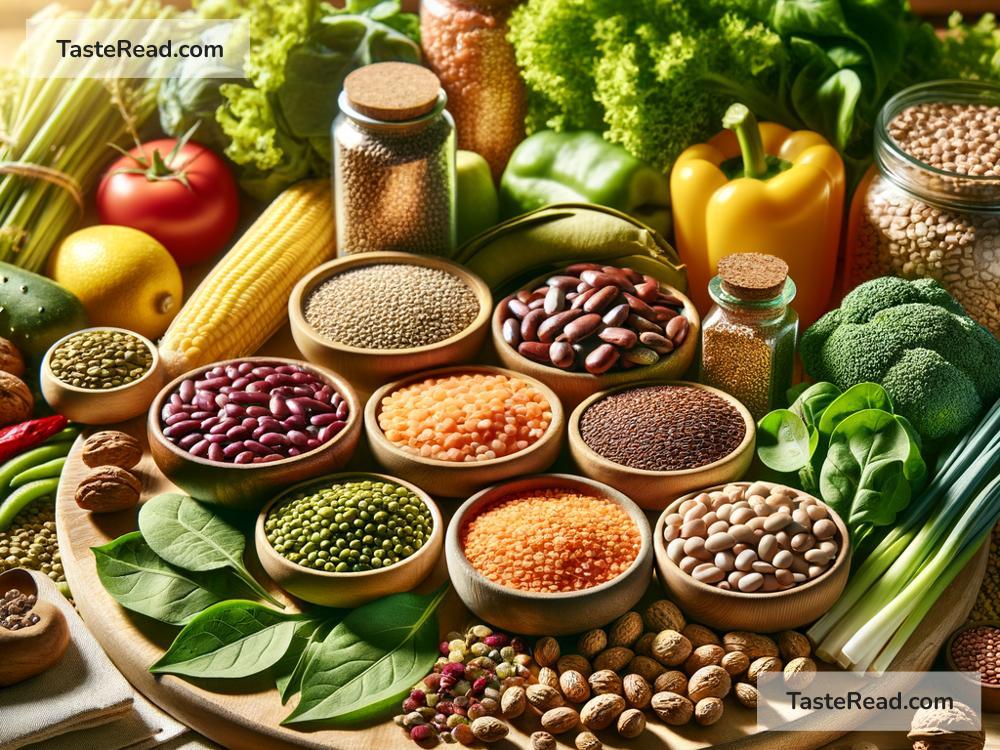The Importance of Molybdenum in Nutrition
When it comes to nutrients, most people are familiar with the big names like vitamins, minerals such as iron and calcium, and macronutrients like protein. But did you know there’s a trace mineral called molybdenum that plays a vital role in keeping your body healthy? While it might not get as much attention as other nutrients, molybdenum is an essential part of your nutrition, and in this article, we’ll explore why it’s important in simple terms.
What Is Molybdenum?
Molybdenum is a trace mineral, which means your body only needs it in very small amounts. Even though it’s not abundant in the body, it has a big impact on how your cells work. This mineral helps many important processes that keep your body running smoothly. You can imagine molybdenum as a small but mighty helper that steps in to make sure certain chemical reactions in the body go as planned.
Why Does Your Body Need Molybdenum?
Molybdenum acts as a cofactor for several enzymes, meaning it helps these enzymes do their jobs effectively. Enzymes are proteins that speed up chemical reactions in the body, making everything from digestion to energy production possible. The enzymes that rely on molybdenum have very specific roles, including breaking down harmful substances and processing nutrients from food. Without enough molybdenum, your body might struggle to clear out toxins or extract the nutrients it needs for energy and repair.
Here are some ways molybdenum contributes to good health:
-
Breaking Down Harmful Substances:
Molybdenum helps your body detoxify certain harmful compounds, especially those containing sulfur. For example, an enzyme called sulfite oxidase needs molybdenum to break down sulfites, which are found in some foods and even produced naturally in the body. If sulfites aren’t broken down properly, they can cause harmful effects, including allergic reactions in some people. -
Supporting Energy Production:
Several enzymes that rely on molybdenum are involved in producing energy at the cellular level. One such enzyme, xanthine oxidase, helps metabolize purines—substances found in food—to produce uric acid as a waste product. This process indirectly supports your body’s energy needs. -
Helping Your Body Process Nitrogen:
Molybdenum plays a role in recycling nitrogen, an important element in many bodily functions. Nitrogen is crucial for building DNA, proteins, and other molecules, and molybdenum ensures it’s handled efficiently.
How Much Molybdenum Do You Need?
Because molybdenum is a trace mineral, your body doesn’t need a lot of it. The recommended dietary allowance (RDA) varies depending on age and gender:
- Adults: About 45 micrograms per day
- Children and teens: Between 17–43 micrograms (based on age)
- Pregnant and breastfeeding women: Slightly higher needs
Luckily, most people get enough molybdenum through their regular diet without needing supplements. It’s rare to have a deficiency because the mineral is found in many common foods.
Foods Rich in Molybdenum
So, where can you find molybdenum in your diet? This mineral is naturally present in various plant and animal foods. Here’s a list of molybdenum-rich options:
-
Legumes: Beans, lentils, and peas are excellent sources of molybdenum. Chickpeas and soybeans are particularly rich in this mineral.
-
Whole Grains: Oats, barley, and whole wheat contain molybdenum, along with other important vitamins and minerals.
-
Nuts and Seeds: Sunflower seeds and almonds contain small but significant amounts of molybdenum.
-
Vegetables: Leafy greens like spinach, as well as cauliflower and broccoli, can contribute to your molybdenum intake.
-
Animal Products: Although plant foods are the primary sources, some molybdenum is also found in organ meats like liver.
Eating a varied diet with these foods ensures you get enough molybdenum and other essential nutrients.
What Happens If You Don’t Get Enough?
Molybdenum deficiency is extremely rare because most diets naturally include the mineral. However, if someone doesn’t get enough molybdenum over a long period (for example, due to a specific medical condition or using certain treatments like intravenous nutrition without supplementation), it could lead to problems such as:
- Difficulty detoxifying sulfites, potentially causing headaches, allergic reactions, or digestive issues.
- Nervous system problems like seizures in severe cases.
On the flip side, too much molybdenum is also harmful. High levels of molybdenum might contribute to health issues, like gout, due to excess uric acid production. Balance is key—the right amount keeps you healthy.
The Bottom Line
Molybdenum may not be a household name, but it’s a vital nutrient your body needs in small amounts. It plays a role in detoxification, energy production, and nutrient processing, ensuring your body functions properly. Thankfully, foods like legumes, whole grains, and vegetables provide enough molybdenum for most people. By eating a balanced and diverse diet, you can support your body’s needs without giving this tiny mineral much thought.
Next time you’re enjoying a bowl of beans or a plate of leafy greens, remember the unsung hero, molybdenum, working behind the scenes to keep you healthy!


